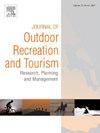探索营地睡眠体验的结构框架
IF 4.4
3区 管理学
Q1 HOSPITALITY, LEISURE, SPORT & TOURISM
Journal of Outdoor Recreation and Tourism-Research Planning and Management
Pub Date : 2024-10-14
DOI:10.1016/j.jort.2024.100831
引用次数: 0
摘要
睡眠是露营旅游最重要但相对薄弱的研究领域之一。本研究利用潜在德里希勒分配法、社会网络分析法和情感分析法,收集了推特数据,构建了露营睡眠框架。研究结果表明,露营睡眠框架由七大主题构成,其中两条关系路径以亲近自然的体验为基石。首先,露营中与自然的联系会改变睡眠环境或个人身体状况,因此露营者的睡眠质量需要更多的支持系统。另一方面,睡眠是露营体验的一部分,它深深地融入了与大自然的联系,并带来积极的益处。最令人惊讶的发现是,即使游客晚上睡不好,亲近自然的体验也会让他们产生积极的情绪。管理启示1.通过改善露营设施和创造最佳睡眠环境,加强露营者的睡眠系统。2.增加生态友好活动,拉近露营者与自然的距离,丰富他们的整体露营体验。4.提供额外的情感支持服务,如心理咨询或冥想课程,以确保露营者获得积极的整体睡眠体验。5.将当地文化和环境特色融入露营项目,将睡眠作为一个新的焦点,并设计反映当地文化的露营体验。本文章由计算机程序翻译,如有差异,请以英文原文为准。
Exploring a structured framework for camping sleep experience
Sleep is one of the most important but relatively weak research fields in camping tourism. Utilizing Latent Dirichlet Allocation, Social Network Analysis, and Sentiment Analysis, this study collected tweet data to construct a framework for camping sleep. The results indicate that seven major topics make up the camping sleep framework, with two relationship paths focusing on pro pro-nature experience as its cornerstone. For one thing, the connection with nature in camping alters the sleep environment or individual physical condition, and thus campers' sleep quality requires more support systems. For another, sleep forms a part of the camping experience which is deeply embedded in nature's connection and brings positive benefits. The most surprising finding is that pro nature experience makes tourists have positive emotions even though they sleep badly at night. Our results can provide insight into well-being experiences in tourism, especially for improving individuals' healthy lifestyles.
Management implications
- 1.Enhance the sleeping system for campers by improving camping facilities and creating an optimal sleeping environment.
- 2.Increase eco-friendly activities to bring campers closer to nature and enrich their overall camping experience.
- 3.Encourage a healthy lifestyle by integrating health-focused activities into the camping experience to promote awareness of the importance of maintaining good sleep habits.
- 4.Provide additional emotional support services such as psychological counseling or meditation courses to ensure campers have a positive overall sleep experience.
- 5.Integrate local cultural and environmental features into camping projects considering sleep as a new focal point and designing camping experiences that reflect local culture.
求助全文
通过发布文献求助,成功后即可免费获取论文全文。
去求助
来源期刊

Journal of Outdoor Recreation and Tourism-Research Planning and Management
HOSPITALITY, LEISURE, SPORT & TOURISM-
CiteScore
6.70
自引率
5.30%
发文量
84
期刊介绍:
Journal of Outdoor Recreation and Tourism offers a dedicated outlet for research relevant to social sciences and natural resources. The journal publishes peer reviewed original research on all aspects of outdoor recreation planning and management, covering the entire spectrum of settings from wilderness to urban outdoor recreation opportunities. It also focuses on new products and findings in nature based tourism and park management. JORT is an interdisciplinary and transdisciplinary journal, articles may focus on any aspect of theory, method, or concept of outdoor recreation research, planning or management, and interdisciplinary work is especially welcome, and may be of a theoretical and/or a case study nature. Depending on the topic of investigation, articles may be positioned within one academic discipline, or draw from several disciplines in an integrative manner, with overarching relevance to social sciences and natural resources. JORT is international in scope and attracts scholars from all reaches of the world to facilitate the exchange of ideas. As such, the journal enhances understanding of scientific knowledge, empirical results, and practitioners'' needs. Therefore in JORT each article is accompanied by an executive summary, written by the editors or authors, highlighting the planning and management relevant aspects of the article.
 求助内容:
求助内容: 应助结果提醒方式:
应助结果提醒方式:


